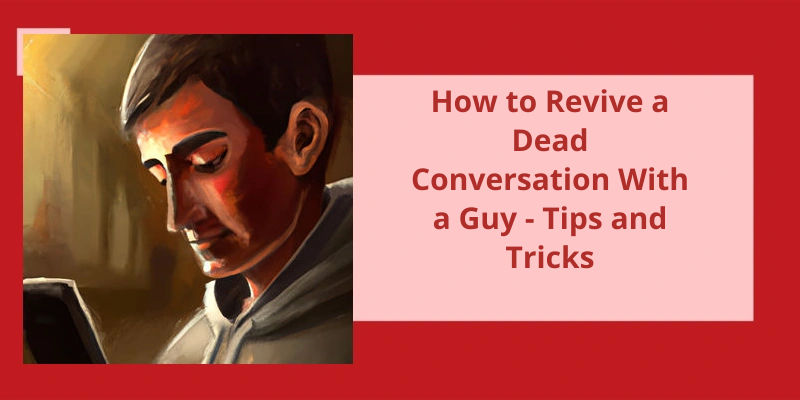Have you ever found yourself becoming irritated with someone, only to feel a pang of guilt afterward? It's a common experience that many of us can relate to. Whether it's a friend, family member, or colleague, there are times when our patience wears thin and we react in ways that we later regret. The feeling of guilt can be overwhelming, leaving us searching for ways to repair the damage done. Fortunately, there are guaranteed ways to navigate these situations and address the guilt that arises after getting irritated with someone. By practicing empathy, communication, and self-reflection, you can find meaningful ways to mend relationships and foster understanding. In this blog, we will explore effective strategies for handling post-irritation guilt, offering practical advice and valuable insights that will help you navigate these complex emotions with grace. So, if you're ready to learn how to move forward after getting irritated with someone, this is the perfect guide for you.
How Do I Let Go of Emotional Guilt?
Weve all been there – that moment when we get irritated with someone and immediately feel a surge of guilt wash over us. It’s a common emotional response that can leave us feeling stuck and overwhelmed. However, there are ways to let go of this emotional guilt and free ourselves from it’s grip.
The first step is to acknowledge that the guilt exists. Instead of brushing it off or pushing it aside, allow yourself to fully experience the guilt. This can help you understand why youre feeling guilty and begin to address those underlying emotions.
Negative self-talk often accompanies feelings of guilt, so it’s important to eliminate this destructive habit. Be mindful of the way you speak to yourself and challenge any negative thoughts or beliefs that may be contributing to the guilt.
Remind yourself of all the things you do, both for yourself and for others. Often, we focus on our mistakes and failings, forgetting about the positive actions we take. Recognizing your worth and the things you contribute can help alleviate guilt.
It’s important to realize that it’s okay to have needs and prioritize your own well-being. Establishing boundaries in your relationships can help prevent the buildup of resentment and guilt. By setting clear boundaries and communicating your needs, you can create a healthier dynamic that reduces feelings of guilt.
If youve done something wrong or hurt someone, making amends is a crucial step in letting go of guilt. Apologize sincerely, take responsibility for your actions, and make a genuine effort to make things right. This act of reconciliation can help heal both yourself and the other person involved.
Lastly, focus on identifying what you can control. Often, guilt stems from feeling responsible for things beyond our control. By shifting your focus to what you can influence and letting go of what you cant, you can alleviate unnecessary guilt and empower yourself to make positive changes.
Letting go of emotional guilt is a process that requires self-reflection, self-compassion, and action. By acknowledging the guilt, eliminating negative self-talk, examining the reasons behind the guilt, reminding yourself of your worth, establishing boundaries, making amends, and focusing on what you can control, you can begin to release the guilt and move forward with a lighter heart.
There are times when a situation arises, and we want someone to feel guilty for their actions or behavior. But how can we effectively make someone feel guilty so they understand what they did wrong? The key lies in determining how deeply you feel about the situation, carefully formulating a plan, and finding a way to confront them that makes them relate to the impact of their actions. By letting them see your genuine hurt, getting their attention in a major way, treating them accordingly, and discussing the situation logically, you may be able to evoke feelings of guilt and encourage change.
What Is the Best Way to Make Someone Feel Guilty?
It can be natural to feel irritated with someone at times, but it’s important to handle those emotions in a constructive way. If youre looking to make someone feel guilty for their actions, there are a few steps you can take. First, it’s crucial to determine how deeply you feel about the situation. Understanding your own emotions will help you approach the conversation more effectively.
Once you’ve a clear understanding of your feelings, take some time to formulate a plan. Think about what you want to achieve through this conversation and how you can address the issue in a productive manner. Planning ahead will give you the confidence and clarity needed for a successful confrontation.
When confronting the person, try to make them relate to the situation. Explain how their actions have impacted you or others involved. Use specific examples and express your emotions in a clear and concise manner. By helping them understand the consequences of their actions, they may start to feel a sense of guilt.
To further emphasize your point, let them see how their actions have hurt you. Displaying your emotions sincerely can have a powerful impact on their understanding of the situation. However, it’s important to avoid becoming overly dramatic or manipulative in order to avoid any misunderstandings.
Another effective way to get their attention is to address the issue in a major way. This can be done by involving a mediator or seeking support from others who’re affected by the situation.
Throughout the process, it’s crucial to treat the person accordingly. Allow them to express their own feelings and opinions, but also hold them accountable for their actions. By maintaining a fair and respectful approach, you can create a space for open and honest communication.
Lastly, during the conversation, make sure to talk about the issue logically. Stay focused on the facts and the impact their actions have had. By approaching the discussion in a logical manner, it can help the person understand the situation and feel a sense of guilt for their wrongdoings.
Remember, the goal isn’t to belittle or punish the person, but to make them aware of the consequences of their actions and encourage positive change.
The Impact of Guilt on Personal Growth and Self-Reflection
Guilt can have a profound impact on personal growth and self-reflection. When we feel guilty after getting irritated with someone, it serves as a signal that our actions may have been hurtful or inappropriate. This feeling of guilt encourages us to reflect on our behavior, identify the reasons behind our emotional response, and consider alternative ways to address the situation in a more constructive manner.
Guilt prompts us to take responsibility for our actions and helps us develop empathy and understanding towards others. It motivates us to apologize, make amends, or seek forgiveness, which can strengthen our relationships and foster personal growth.
Self-reflection plays a crucial role in this process. By examining our thoughts, emotions, and behaviors, we gain insights into our triggers and patterns of reaction. This self-awareness allows us to make conscious choices, develop healthier coping mechanisms, and cultivate better communication skills.
Ultimately, the impact of guilt on personal growth and self-reflection lies in it’s ability to push us towards self-improvement, fostering empathy, compassion, and nurturing healthier relationships.
However, understanding the dynamics of guilt and it’s effects on individuals is crucial in navigating interpersonal relationships. While it may be difficult to determine culpability for another person’s guilt, understanding the potential impact allows us to explore healthier and more empathetic forms of communication.
Can Someone Make Someone Feel Guilty?
Can someone make someone feel guilty? This question has intrigued psychologists for years. It’s commonly believed that guilt is an internally generated emotion, a reflection of ones own values and actions. However, recent research suggests that guilt can indeed be induced by external factors, including the actions and words of others.
When someone intentionally tries to make another person feel guilty, it’s often seen as a form of manipulation or emotional manipulation. This aversive interpersonal behavior can lead to feelings of resentment, anger, and sadness. The guilt-inflicting individual may employ various tactics, such as exaggerating the magnitude of the perceived transgression, highlighting the potential consequences, or using emotional blackmail.
It’s important to note that making someone feel guilty isn’t an effective or healthy way to address conflict or encourage change. While guilt may temporarily influence behavior, it’s unlikely to lead to lasting positive changes. In fact, excessive guilt can have detrimental effects on mental health and well-being, leading to self-esteem issues, anxiety, and depression.
Instead of resorting to guilt-inducing tactics, it’s more productive to communicate openly and honestly with the person involved. Expressing your feelings, concerns, and expectations in a respectful manner allows for a more constructive dialogue. It’s essential to promote a sense of empathy and understanding, rather than aiming to make someone feel guilty.
Making someone feel guilty may provide momentary satisfaction for the guilt-inflicting individual, but it’s far from a healthy or effective method of influencing behavior. Genuine change and growth come from understanding, empathy, and open communication. So, lets strive to create a more compassionate and understanding world rather than resorting to guilt as a means of control or manipulation.
Recognizing Emotional Manipulation: Educate Readers on the Signs of Emotional Manipulation and How to Identify When Someone Is Trying to Make Them Feel Guilty.
- Excessive guilt tripping
- Constant blame shifting
- Gaslighting
- Emotional blackmail
- Playing the victim
- Manipulating through guilt
- Using passive-aggressive behavior
- Undermining self-worth
- Isolating from friends and family
- Creating a sense of dependency
- Invalidating feelings
- Denying personal responsibility
- Making threats or ultimatums
- Distorting reality
- Withholding affection
- Mind games and emotional tricks
- Boundary violations
- Using manipulation tactics to control
- Exerting power through guilt
- Minimizing or dismissing concerns
Source: What should I do when someone tries to make me feel guilty?..
However, guilt in relationships is a complex emotional response that can stem from a variety of factors. In addition to empathy and anxiety, it could also be influenced by personal values, societal norms, or unresolved personal issues. Understanding the underlying causes of guilt can help individuals navigate and address these emotions in a healthier and more constructive manner.
Why Do I Feel Guilty After Being With Someone?
When we find ourselves feeling guilty after being with someone, it stems from a combination of factors from an interpersonal perspective. Firstly, one of the main sources of guilt is empathy. We can deeply understand and comprehend the suffering we may have caused our partner through our actions or words. This empathy allows us to feel the weight of our transgressions and builds a sense of guilt within us.
Secondly, the anxiety of potential consequences can also contribute to the guilt we experience. We fear that our actions or mistakes may lead to rejection or even the destruction of the relationship we’ve with the person we care about. This fear amplifies the guilt we feel, as we become acutely aware of the potential damage we may have caused.
In such situations, an apology often becomes the anticipated and expected dynamic of repair. We strive to express our remorse and seek forgiveness as a means to ease the guilt we feel. By offering an apology, we hope to address the suffering we’ve caused and reassure our partner that we value the relationship and are committed to making amends.
However, it’s crucial to note that the feeling of guilt alone isn’t sufficient for repairing any damage done. It’s equally important to take proactive steps to rectify the situation and learn from our mistakes. Engaging in open and honest communication, actively listening to our partners perspective, and making a genuine effort to change our behaviors are all essential elements of true repair.
It’s a testament to our capacity for empathy and our desire to maintain meaningful relationships. By acknowledging our guilt, taking responsibility, and working towards genuine change, we can learn and grow both individually and in our connections with others.
Dealing With Guilt in Romantic Relationships
- Reflect on the source of the guilt
- Talk openly with your partner about your feelings
- Seek therapy or counseling to help process and navigate your emotions
- Practice self-forgiveness and self-compassion
- Take responsibility for your actions and make amends if necessary
- Set healthy boundaries to prevent future guilt
- Focus on personal growth and self-improvement
- Practice open and honest communication with your partner
- Learn from past mistakes and use them as lessons for the future
- Seek support from friends, family, or a support group
Understanding the reasons behind feeling guilty after being mad at someone is important to unravel the complex emotions that come with it. While it may seem paradoxical, this guilt stems from a strong sense of empathy and a concern for the repercussions of one’s actions. Rather than defining oneself solely by these negative moments, it’s crucial to uncover the underlying goodness and strive towards constructive solutions in times of anger.
Why Do I Feel Guilty After Being Mad at Someone?
Why do I feel guilty after being mad at someone? Well, feeling guilty is a natural response when we do things we don’t want to do or when our actions have potential negative consequences. It signifies that there’s a part of us that’s empathetic and concerned about the well-being and emotions of others, even in moments of anger.
When we become irritated with someone, it’s easy for our emotions to cloud our judgment and push us towards actions or words that we may regret later. In those moments, our negative emotions tend to mask our true selves, overshadowing our usually empathetic nature. We might say things that hurt the person or act in a way that goes against our values, leading to feelings of guilt afterwards.
Guilt, in this context, serves as a reminder of our intrinsic goodness and serves as a motivator to repair any harm we may have caused. It prompts us to reflect on our actions and apologize to the person we were mad at, as we recognize the impact that our behavior might have had on them. It also pushes us to learn from these experiences and find healthier ways to express our anger or frustration in the future.
In essence, feeling guilty after becoming irritated with someone is a testament to your empathetic nature and concern for others. It indicates that you’re capable of recognizing the impact of your actions and strive to make amends. So, rather than dwelling solely on the guilt, focus on learning from your mistakes, communicating your apologies, and finding healthier ways to handle your anger in the future.
Guilt can be a powerful emotion that can be manipulated by others, especially in abusive relationships. It’s essential to recognize when someone is trying to guilt-trip you into doing things that you’ve already said no to. If this behavior becomes a pattern, it’s crucial to reach out for help in order to address the situation effectively.
Can Someone Make You Feel Guilty?
Can someone make you feel guilty? The power of guilt-tripping is a manipulative tactic that some people may use to provoke feelings of guilt within you, even when you’ve absolutely nothing to feel guilty about. It’s unfortunate that this often happens in abusive relationships, which is why it’s crucial to recognize the signs and reach out for help if you find yourself in such situations.
One common red flag is when someone consistently tries to guilt you into doing things after you’ve clearly stated your reluctance or expressed your disapproval. This persistent pressure can lead you to believe that you’re at fault and should give in to their demands, even if it goes against your own wishes or best interests. It’s important to remember that assertively expressing your boundaries and saying “no” should be respected and honored in healthy relationships.
Another key point to consider is whether this guilt-tripping behavior forms a pattern. If you notice a repeated cycle where the guilt trips are used as a form of control or manipulation, it’s a clear indication of an unhealthy dynamic. The guilt-tripper may use your emotional vulnerability as leverage, utilizing guilt as a tool to maintain power over you and exert control.
Recognizing and addressing this pattern is vital for your mental and emotional well-being. Seek support from friends, family, or professionals who can provide guidance and help you navigate these challenging situations. Remember, guilt-tripping should never be accepted as normal or justified behavior in any relationship.
By reaching out for help, you can gain the necessary support and guidance to break free from these harmful dynamics. Surround yourself with individuals who respect your boundaries and validate your feelings, creating a healthier space where you can regain your sense of self-worth and overcome the guilt that’s been unjustly imposed upon you.
Guilt-Tripping Versus Healthy Communication: Highlight the Differences Between Guilt-Tripping and Healthy Communication, Emphasizing the Importance of Mutual Respect, Empathy, and Understanding in Relationships.
- Guilt-tripping involves manipulating someone’s emotions to make them feel guilty or responsible for something.
- Healthy communication, on the other hand, focuses on open and honest dialogue without resorting to manipulation tactics.
- Mutual respect is crucial in healthy communication, where both parties listen to each other’s perspectives without judgement.
- Empathy plays a significant role in healthy communication, as it allows individuals to understand and validate each other’s feelings.
- Understanding is another essential element in healthy communication, where both parties strive to comprehend each other’s needs and experiences.
- In contrast, guilt-tripping often involves dismissing or disregarding the other person’s feelings and needs.
- Resorting to guilt-tripping can create a toxic dynamic in relationships, eroding trust and causing emotional harm.
- On the other hand, healthy communication builds trust and strengthens connections by fostering a safe and supportive environment.
- It’s important to recognize the signs of guilt-tripping and aim for healthier ways of expressing one’s needs and concerns.
- By prioritizing mutual respect, empathy, and understanding, relationships can thrive and flourish.
Conclusion
In conclusion, when we find ourselves growing irritated with someone and subsequently feeling guilty about our reactions, it’s important to take a step back and reflect on our emotions. By acknowledging and understanding our triggers, we can better manage our emotions and communicate our frustrations in a healthy manner. Implementing techniques such as practicing empathy, active listening, and giving ourselves time to cool off can help us maintain harmonious relationships and minimize the impact of our irritations. Additionally, embracing forgiveness and offering sincere apologies can mend any rifts caused by our reactions, fostering a more positive and compassionate environment. Remember, it’s natural to become annoyed, but how we handle these situations ultimately defines our character and the strength of our connections with others.






